#Medieval Psychology
Text
Walter Burley one of the most prominent logicians and metaphysicians of the Middle Ages
284J Aristotle , Gualtherus Burlaeus. (Walter Burley (c. 1275–1344/5 ))
Expositio Gualteri Burlei super decem Libros Ethicorum Aristotelis (Contains the text of Robert Grosseteste’s translation of the Nicomachean Ethics)
Venice: Simon de Luere for Andreas Torresanus, 4 September 1500 $11,500
Folio, 12 1/4 X 8 1/2 in. A8 a6 b-x8 y10.
Second edition after the first of 1481.
This copy is bound…
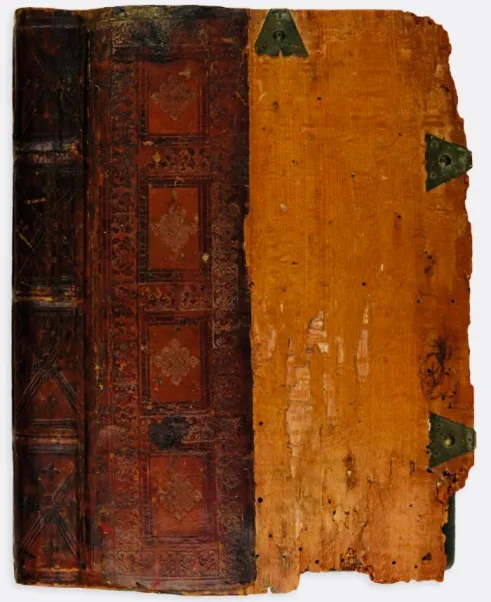
View On WordPress
#Buridan Agent Intellect Buridan Common Sense Buridan Hylomorphism Buridan Intelligible Species Buridan Intentions Buridan Phantasms Buridan#Buridan Aristotle#Buridan Common Sense#Buridan Materialism#Medieval Psychology#thirteenth century
0 notes
Text

They could have been BFFs
#danny phantom#vlad masters#jazz fenton#meta#danny breaks down vlad's front door to find his arch nemesis & his big sister#wearing matching pink bathrobes & spa masks & painting each other's nails#while having an absolutely incomprehensible conversation about medieval eastern european architecture#(does jazz even have any friends? is she one of those lonely gifted kids?)#she & vlad are both so chatty & gregarious. same strong/overbearing bulldozer personalities#their mall crawls would be epic#& with jazz's penchant for psychology vlad would be an endless source of intrigue#vlad sobbing on the phone‚ eyeliner smeared down his cheeks: i just don't know what to do jasmine#jazz: *sighs and pulls her dsm-v off the shelf*#whenever jazz has had her fill of her family's insanity#she goes & spends the weekend with vlad#because his brand of insanity is different & she needs a break#plus vlad makes the best roszke
1K notes
·
View notes
Text
on reflection, i think there's a symmetry to, say, doctors who are willing to refer patients to osteopaths or other ""holistic"" healthcare providers and the susceptibility of engineers to certain kinds of crankdom (of the "i-disproved-relativity-in-my-garage" type). both are forms of scientific training of a sort, but they're heavily outcome-focused and not theoretically focused. in large part, this is good! you do not as a doctor need to have a robust theoretical defense of every treatment you provide to patients, and it would be impossible to do so, because medicine is a huge and complicated subject. you do not, as an engineer, need to have a subtle grasp of theoretical physics to build a bridge; you just need to know what the latest developments in bridge-building are.
but it means in both cases you can have people who are skilled in their field, or who even excel, but who don't understand very well why certain techniques work. and in the case of alt medicine, where there has been considerable work to try to obfuscate or deceive people on how shaky the theoretical basis for their techniques are (stuff that literally if you remember your high-school physics and biology at all will make you go, "wait, there is no plausible mechanism for this, that's not how any of this works"), doctors who do not have time to read studies on RCT trials of every type of medicine they have ever heard of will blithely recommend stuff to patients that's actually complete horseshit, especially if the culture around them has been normalizing that woo as part of "holistic" therapy for the last hundred years, spurred on by alternative medicine practitioners and a public with a fear of needles and ~chemicals~ that medical practitioners have not done enough to allay.
it does not help that medicine only emerged very recently from being about 99% bullshit. like maybe at the end of the 19th century at best medicine was starting to be put on a broad-based empirical and theoretical footing--before that it's truly insane the stuff that wasn't just considered perfectly normal medical practice, but was considered serious Science. i mean, this is why we developed double-blind studies in the first place--because theoretical explanations of medical treatments are still necessarily often secondary to the process of finding ones that actually work, so we need really robust mechanisms to avoid confirmation bias or outright charlatanry. and while mainstream medicine is far from perfect in this respect, "alternative medicine" is all far, far worse.
#imagine if bridge-building was still trial and error half the time#like medieval cathedral building#that's probably not very fair to medicine#like we've gotten so much better in just the last seventy years#at targeted medical research#but still sometimes we develop new treatments#and we're like 'idk why this works but i'm pretty sure it does'#psychology still feels like it's full of individual practitioners with idiosyncratic theories#inventing therapies in an ad-hoc way#like ye olde 19th century doctors#but psychology is still theoretically very weak#so that kinda makes sense to me
96 notes
·
View notes
Text
I feel like a madman whenever I talk to someone about England and himself. I don't even act like it's a conspiracy theory, I just act as if England and England are actually and canonically two completely different characters yet are also the same characters if you get what I mean. I would literally write an essay (let alone a whole book) about Arthur Kirkland's psychology and character WITH sources as if I'm studying this character for a top grade.
#hetalia rambles#hws england#hetalia#I feel that asaeng potential#i should've taken up english language or psychology a level#if I wasn't so dead set in doing fine arts (and medieval history and latin)
44 notes
·
View notes
Text
asoiaf self insert fanfiction is so weird why do u people keep trying to introduce gunpowder and modern warfare to westeros
#IT WOULD MAKE EVERYTHING SO MUCH WORSE??????#any other fandom it’s like#yay i get to be in this world and hang with my besties and kiss someone and save the world ! isn’t it horrifying getting isekaid anyways#and asoiaf ones are like i’m a genius inventor who will single handedly induce an industrial revolution yes i have that knowledge all in my#head and can put this into practice EASILY while engaging in 7d chess psychological warfare with my blorbos#it’s WILD#can’t u just hang out#i promise ur self inserts not remembering exactly how to recreate a printing press in fantasy medieval land
2 notes
·
View notes
Text
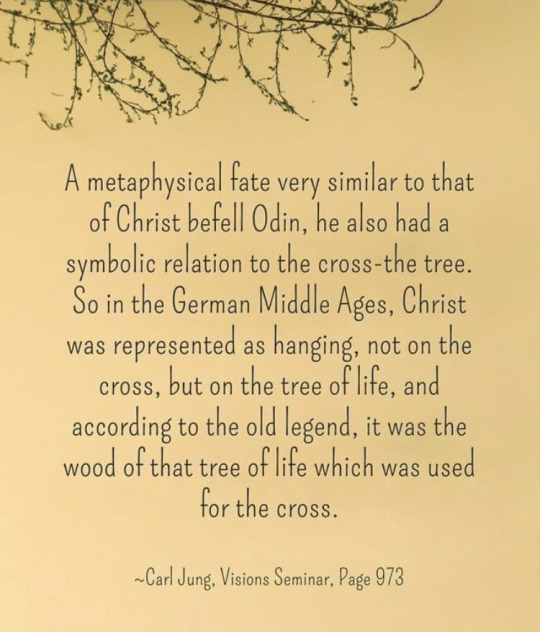
A metaphysical fate very similar to that of Christ befell Odin; he also had a symbolic relation to the cross – the tree. So in the German middle ages, Christ was represented as hanging, not on the cross, but on the tree of life, and according to the old legend, it was the word of that tree of life which was used for the cross.
#spirituality#carl jung#Odin#Christ#tree of life#Middle Ages#medieval Germany#cross#comparative religion#jungian psychology
24 notes
·
View notes
Text
Theory: Gawain's horse Gringolet was an Eriskay pony.
Source for Gringolet's coloring: This excellent blog post, Sir Gawain and the Grey Gringolet.
“They brought Sir Gawaine a steed,
Was dapple gray and good att need,
I tell withouten scorne” [268-70, The Greene Knight]
Wikipedia's entry on Gringolet says, "More generally accepted is the suggestion by the prominent Arthurian scholar Roger Sherman Loomis that the French name Gringalet derived from either the Welsh guin-calet ("white and hardy"), or keincaled ("handsome and hardy")."
So he's dapple gray or he's white. (Possibly "linked to a wider Celtic tradition of white horses with red ears." Not important for the purposes of this post.) Both can be true, since true "white" horses are rare; generally they're gray and have whitened as they've gotten older. Thus young Gringolet could be dapple gray while older Gringolet could be white. (It really doesn't take long for them to get really white looking.)
Back to the Eriskay ponies! We know from a recent comprehensive archaeological study that medieval knights rode ponies. Horses that were under 14.2hh / 4'10" / 1.47 meters at the shoulder or smaller. Which is probably about 950 lbs / 430 kg or smaller (weight is based on my 14.2 horse, who's built pretty drafty and heavy boned, and is 950 lbs when he's not too chonky).
Eriskay ponies are between 12 and 13.2 hh (4 ft to 4 ft 6 inches, or 121.92 cm to 137.16 cm) at the top of their shoulder, which is closer to the average of horses at the time of King Arthur and Sir Gawain.
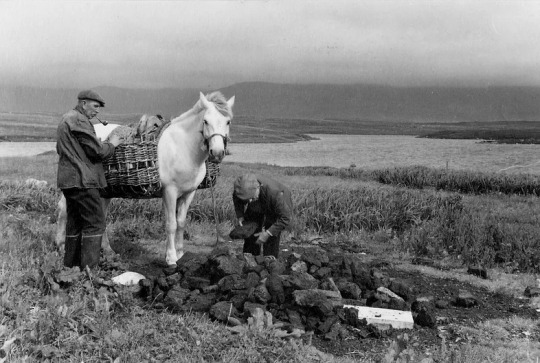

They're from the Outer Hebrides islands in Scotland, originally the Isle of Eriskay. They have long been protected from outside influence by their island location, and so the Eriskay ponies of today are probably pretty close to the ones of the 5th century, at least closer than any of the other native ponies of England, Scotland, etc. Here's a map I found on a Google search of the Scottish islands. The Orkneys, where Gawain would have been from in later Arthurian literature*, are 18-20 at the top/north of the map. Eriskay is in the Outer Hebrides, a tiiiny isle between South Uist (16) and Barra (17) on the far left/west of the map. So not exactly the same place, but close enough, relatively speaking. And I couldn't find anything on native horse breeds of the Orkneys.
* He wasn't from Orkney in the early literature, he was of Lothian. His father was Loth of Lothian, which is in southeastern Scotland in the lowlands, and Loth was later King of Norway in Geoffrey of Monmouth's History of the Kings of Britain, supposedly by right of being nephew of the former king. Orkney was a separate kingdom with its own king. But he's most popularly associated with Orkney in later literature and in modern fandom, so we're going with it.

Other native Scottish breeds include:
Galloway pony. If this one came in gray, I'd say it's as likely as the Eriskay (especially as Gawain was originally from what is now southeastern Scotland in the early literature aka Geoffrey of Monmouth's work), but it was usually bay or black. Now extinct as a breed, unfortunately. Noted for its “good looks, a wide, deep chest, and a tendency to pace rather than trot", which would have been an advantage on long rides. From Scotland and northern England. Small head and neck, elegant build, eventually absorbed into the Fell pony.
Shetland pony. I think they were probably a little small even for shorter medieval knights. They're 3.3 feet tall at the shoulder maximum. That's 10 hh or about 1 meter tall. 300-500 lbs or 135-225 kg.
Highland pony. They are usually various shades of dun, and taller than the other ponies, and do sometimes show up in dapple gray. We have fewer records and evidence of its history though; we have some descriptions in the 18th century of what's believed to be Highland ponies, but that's about it. I'll accept arguments for some old variety of the Highland pony as Gringolet, but remember that we're looking at the late 5th century, so the late 400's C.E., and I think the modern Highland pony is not going to provide a useful model of whatever Gawain was riding back in the 5th century.
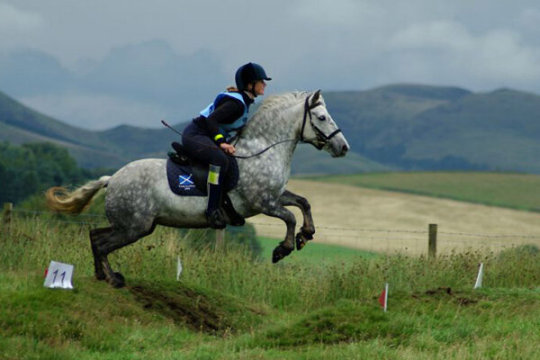
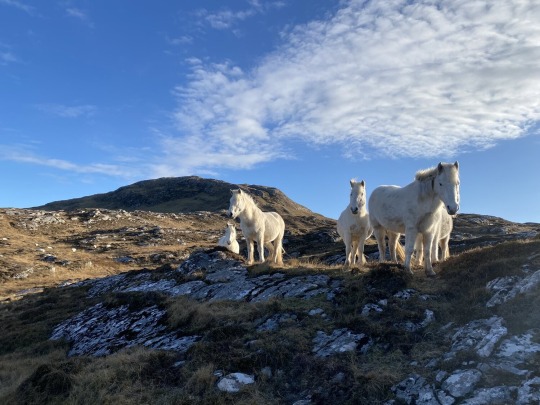
#resources#gawain#gringolet#medieval horses#horses#arthuriana#I told you#psychology or horse facts#I haven't read enough arthurian lit to start seriously psychoanalyzing characters yet#so you get horse facts#reference
19 notes
·
View notes
Text
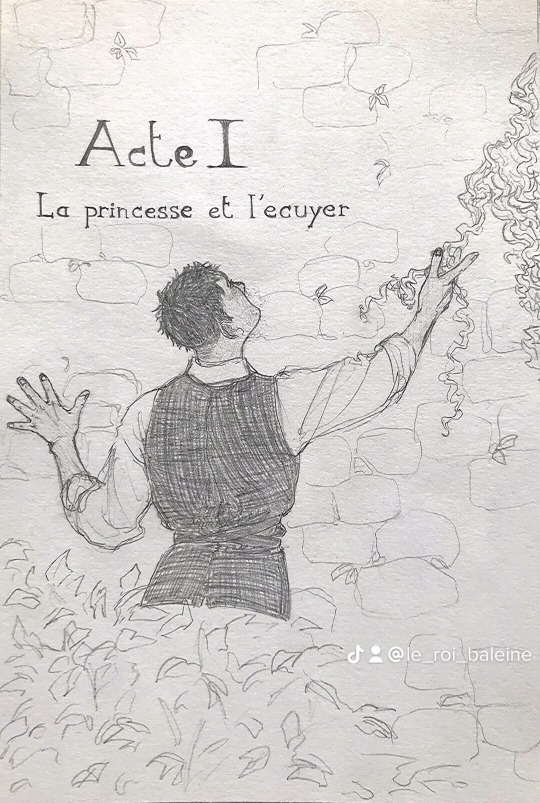
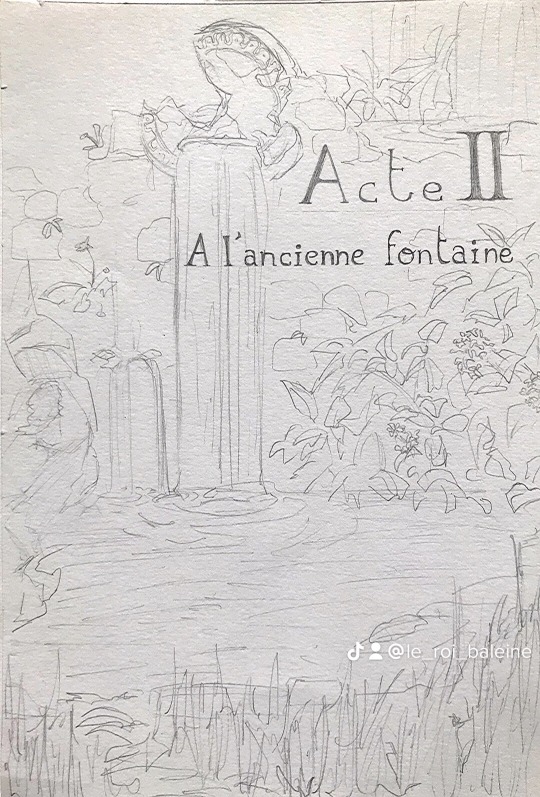
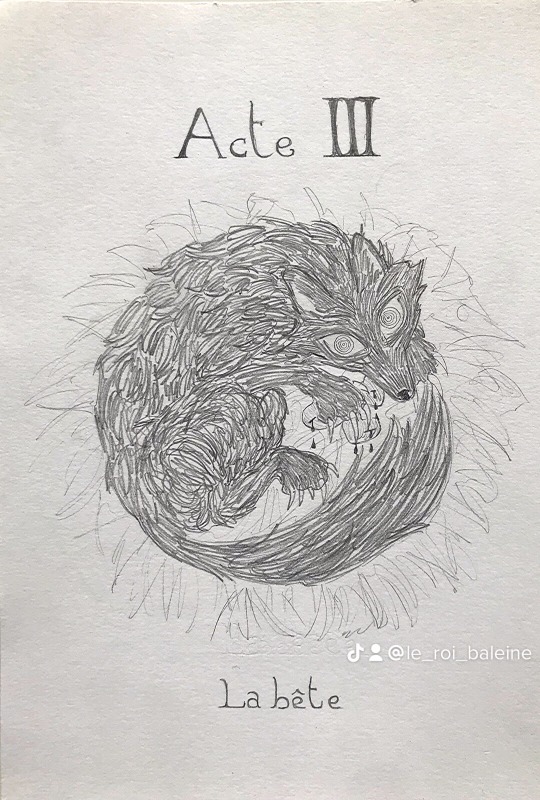
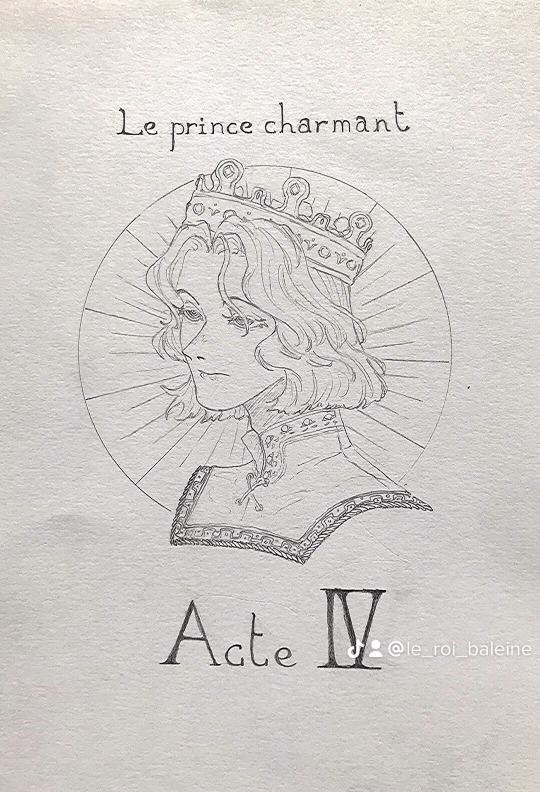
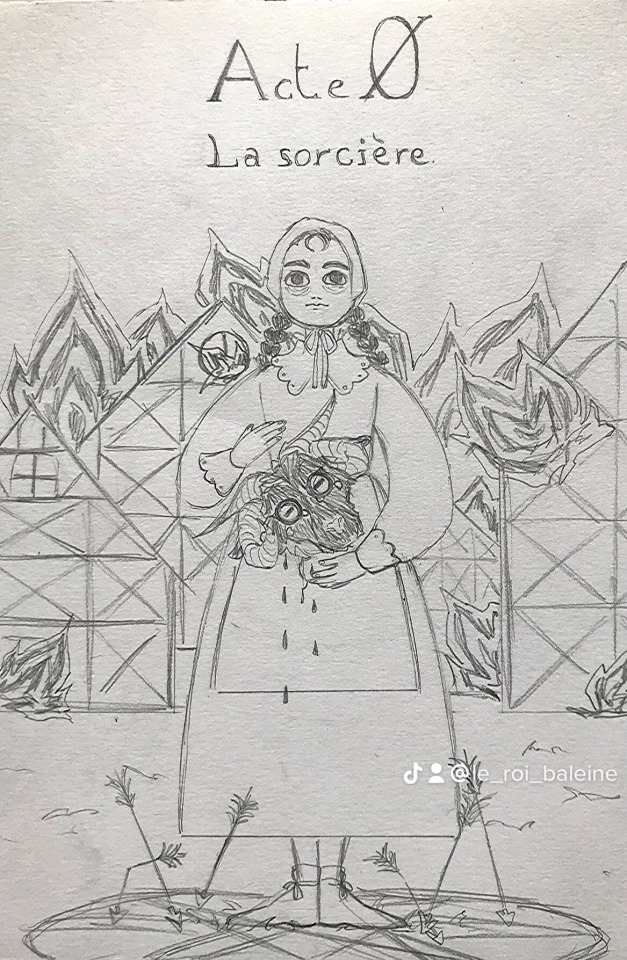
It’s not my usual fanart stuff. But some personal project I made for school. (And also for myself. It’s yet again one story of mine)
16 notes
·
View notes
Text
Ancient/Medieval combat trauma (PTSD) in fiction? Any recommendations? Fantasy counts, doesn’t necessarily have to be straight Historical Fiction. Just pre-guns.
#ptsd#cptsd#combat trauma#combat stress#history#I have a handful of non-fiction sources/academic articles to draw on#and medieval text has obvious depictions of mental illness like madness#but the cure is ointment on the head which doesn’t really track#I’m aiming for realism in the aspects of human behavior & psychology#even if there is magic or whatever that’s besides the point representing mental illness#as accurately as possible is not optional#I’ve spoken with veterans but not very deeply as that’s upsetting to them & the modern experience is so different#any examples that resonated would be appreciated
25 notes
·
View notes
Text
Commonplace Songs
So. Here’s the thing. I have a bad habit of skimming, especially when I’m reading rubrics. I don’t notice I’m doing it but it can mean I miss important bits of information, such as the part about your last entry being a 250 word retrospective. Luckily I am aware of this deficiency of mine so I tend to check my rubrics periodically to make sure I haven’t missed anything. So I wrote the post. But. Before I realized there was a set end to the life of this blog I still intended my own form of wrap-up. I decided to make a playlist with at least one song per reading from this class. Even after I knew I just had to write a lil paragraph I couldn’t get the idea out of my head so here is the playlist anyway.
[Commonplace Songs]
Obviously it would be a bit of a time commitment to listen to the whole thing, so this was mostly just for my own enjoyment, but I had too much fun not to share. Notes for each song under the cut.
Abbess Hild & Caedmon, & Caedmon’s Hymn - Sisters of Mercy - Leonard Cohen
This one was honestly one of the most difficult to figure out. I generally struggled most to find songs for the explicitly religious texts, but I think this one works pretty well if you think of it as being from Caedmon’s perspective.
The Exeter Book Riddles - The Riddle Song - Joan Baez | Scarborough Fair - Simon and Garfunkel
These are cheating a little I know, since they both have very old origins themselves. I did consider including Schubert’s Swansong as a reference to Riddle 7, but I’ve tried to stick with songs that have lyrics.
The Wanderer - Man of Constant Sorrow - Joan Baez
Man of Constant Sorrow is really a modern version of The Wanderer to me. An exile “bound to ramble” away from their loved ones, unable to see them again in this life.
Deor - This Too Shall Pass - Danny Schmidt
This one is obvious from the title, and she makes rings! What more could you ask?
The Wife’s Lament - You Don’t Have to Say You Love Me - Dusty Springfield | One Too Many Mornings - Joan Baez
You Don’t Have to Say You Love Me really captures the tragedy of still being in love with someone who’s abandoned you. I think the desire for physical proximity really works with The Wife’s Lament. One Too Many Mornings works for the feeling of physical, but more importantly, temporal distance. The tortuous, and at the same time mundane passing of time, and the feeling of it being too late.
Wulf and Eadwacer - Farewell Wanderlust - The Amazing Devil
I struggled with this one. Another song considered was Better Man by Pearl Jam but I think Farewell Wanderlust works better even if it's less specific. It's got the anger, frustration, heartbreak, and defeat going for it.
Dream of the Rood - The Becoming - Nine Inch Nails
I decided no church music was allowed which made this one harder. I decided to lean into the slight body horror of the description of the cross shifting between bloodstained and bejewelled. Also: “He’s covered with scabs he’s broken and sore” just like Jesus! Obviously this doesn’t really suit the glorious tone the poem was going for, but I personally found the poem a bit unsettling.
Judith - Glory and Gore - Lorde | The Dismemberment Song - Blue Kid
Glory and Gore definitely fits the tone of the poem best, it's hard to explain why without going line by line, but trust me this one is exceptionally good for Judith. The Dismemberment Song is here even though it's not quite right, because it was suggested to me and it made me laugh. Content warning though, it is very clinically detailed about, you know, dismemberment.
The Battle of Maldon - Immigrant Song - Led Zeppelin
This one is pretty obvious right? I came so very close to including Waterloo by ABBA as well, but I do have some restraint.
History of the Kings of Britain - Set Fire to the Rain - Adele | Everybody Wants to Rule the World - Tears for Fears
Set Fire to the Rain is for Igerna. All that love, and vulnerability, and secrets, and distrust. This song is just about Igerna to me now, it's pretty perfect for her. Everybody Wants to Rule the World works really well for Arthurian legend. “Nothing ever lasts forever, everybody wants to rule the world”
The Mabinogi - Rhiannon - Fleetwood Mac | She’s Always A Woman - Billy Joel
Rhiannon is ludicrously obvious, I don’t think I need to explain. She’s Always A Woman is also about Rhiannon, specifically how Pwyll defends her and keeps her as his queen even though everyone is against her.
Lanval - Who is She? - I Monster | Come Wander With Me - Jeff Alexander
I feel like a magical woman appearing out of nowhere to be your girlfriend would actually be pretty trippy, hence Who is She? Come Wander With Me is a bit more suitable tonally. Have fun wandering off, never to be seen again, Lanval!
Ancrene Wisse - Agoraphobia - Deerhunter
As you might expect, from a song called Agoraphobia, this works well for anchoresses. The lyrics match the actual daily life of an anchoress surprisingly well.
Middle English Lyrics - Luck Be a Lady - Frank Sinatra
With regard to The Lady Dame Fortune is both frende and foe
Sir Orfeo - Frozen Pines - Lord Huron | Word Spins Madly On - The Weepies
Frozen Pines captures the frozen-in-time-ness and its about seeking a lost loved one in the woods. It's perfect. World Spins Madly On works because time has also very much not frozen, and they are apart from one another, knowing, and at the same time not knowing, where the other is. Honourable mention to Nothing Takes the Place of You by Toussaint McCall, which just wasn’t quite right, but has a maturity the other two lack.
Sir Gawain and the Green Knight I - Family Friend - The Vaccines
Poor Gawain is the only responsible adult at court. Jokes aside, this is a really good character song for Gawain.
Sir Gawain and the Green Knight II-III - All in Green Went My Love Riding - Joan Baez
I’ve mentioned this one before. It's too perfect not to include.
Sir Gawain and the Green Knight IV - Little Lion Man - Mumford and Sons
Another character portrait for my favourite boy Gawain! This also works for him in Morte d’Arthur. He tries so hard, and always comes just a little bit short, and then blames himself mercilessly.
Canterbury Tales – General Prologue - Prologue: Into the Woods - Stephen Sondheim
I’ll be honest, I had no idea what to do for this one, but I committed to a song per reading. It does work well in a way. They are both prologues that introduce a billion archetypal characters at once, tell you what they want, and make fun of the a little. Sondheim could have done a kick-ass musical adaptation of The Canterbury Tales.
Piers Plowman – Prologue - Land of the Believer - The Weather Girls
Club music perilously close to gospel music, I wouldn’t be surprised if this genuinely was about Jesus and religion. I considered skipping Piers Plowman because we didn’t actually go over it in class, but I’m a completionist.
Chaucer – Canterbury Tales – The Miller’s Tale - You Give Love a Bad Name - Bon Jovi
Oh Absolon… I considered going with Tainted Love, but I needed a ridiculous song for a ridiculous story.
Chaucer – Canterbury Tales – The Miller’s Tale - Put the Blame on Mame - “Rita Hayeworth” Anita Ellis
On the other hand, Put the Blame on Mame is about a beautiful woman being blamed for disasters both natural and human, but which is supposed to, in my opinion, make you think about how ridiculous it is to actually blame a woman for that kind of thing.
Julian of Norwich – A Revelation of Love - Space Age Love Song - A Flock of Seagulls
I love taking songs that aren’t supposed to be about Jesus and making them about Jesus, and Jesus in the role of alien girlfriend is funny to me. That said, it does work really well for the transcendent vibe of medieval mysticism.
The Book of Margery Kempe - Crazy - Gnarls Barkley | Policy of Truth - Depeche Mode
I found it a bit difficult to take Margery seriously at first, because she is patently a ridiculous person, but is she really crazy just because others think she is? Trying to think of songs for her is actually what made me take more seriously what her life was like. She experienced many dangers and a lot of persecution for living her truth, hence Policy of Truth.
The Book of Margery Kempe - Sad Eyed Lady of the Lowlands - Joan Baez
A singular, and shockingly untouchable woman.
Second Shepherd’s Play - Mack the Knife - Ella Fitzgerald | Sheep - Pink Floyd
I admit, these are both kind of joke songs, but they do work! Mack because Mac, sheep because sheep.
Second Shepherd’s Play - Under Pressure - Queen and David Bowie
The slightly more serious choice for this play. It matches the complaining of the shepherds at the beginning of the play, and it has references to prayer, and a desire for change that works given it is a nativity play.
Noah’s Flood - Rain on Me - Lady Gaga (feat. Ariana Grande)
Okay, hear me out. I know it's a club song, but it's actually perfect for Noah’s wife. I can’t go line by line, but it expresses disappointment with a relationship, be it with God or Noah, but it also expresses gratitude for being alive, even though they wish they were “dry” , a reference to rain, and alcohol.
The Crucifixion - Blowing’ in the Wind - Joan Baez
This one was really hard without just choosing a song literally about the crucifixion, which would be cheating. Blowing in the Wind is about ignorance and apathy to human suffering, which is also what characterises the Roman soldiers. Also, yes, I will pick the Joan Baez version of every song I can. Thank you for asking.
Mankind - WWJD - The Axis of Awesome | Out of Touch - Hall and Oates
Mankind - Send Them Off! - Bastille
WWJD is another joke song, but you can’t tell me a group of demons in a morality play wouldn’t sing this. Like the demons in the play, it humorously pokes at a question people would really be asking about how they are supposed to ever live up to Jesus. Out of Touch and Send Them Off! are more straightforwardly readable as Mankind singing to/for Mercy.
Morte d’Arthur, book 1 - Tower Song - Martha Wainright | In the Blood (feat. Ashley Barrett) - Darren Korb
Tower Song is my other song for Igerna. It works along the same lines as Ste Fire to the Rain, but it's a little more vicious. I was torn about including In the Blood, even though it works well for Arthur, because of course it does, I transposed one young hero who is the future of his people, onto another. I still think the Arthurian angle changes the way the song reads enough for it to work, though.
Morte d’Arthur, book 8 - Happy Ending - MIKA | Heavy Crown - Trixie Mattel
For Happy Ending, please see my previous post on Lancelot and Guinevere. Heavy Crown is for Arthur, “Winning’s losing with a couple strings [...] Gotta be the last to know”, I think it suits the melancholy of all the lost glory Camelot, and how inevitable the whole thing felt to Arthur the second he was confronted by Agravaine and Mordred about Guinevere and Lancelot
#alas many songs were left on the cutting room floor#this was a good learning experience#a lot of medieval lit isn't super character focused#they tend not to get into anyone's head the way books do in our psychological age#which can leave character feeling pretty flat at first blush#doing this forced me to get into their heads regardless#It made me appreciated their subtle nuances a lot more#I could tag every story poem song and author separately but i won't because can you even imagine#florilegia
7 notes
·
View notes
Text
Walter Burley
284J Aristotle , Gualtherus Burlaeus. (Walter Burley (c. 1275–1344/5 ))
Expositio Gualteri Burlei super decem Libros Ethicorum Aristotelis (Contains the text of Robert Grosseteste’s translation of the Nicomachean Ethics)
Venice: Simon de Luere for Andreas Torresanus, 4 September 1500 $11,500
Folio, 12 1/4 X 8 1/2 in. A8 a6 b-x8 y10.
Second edition after the first of 1481.
This copy is bound…
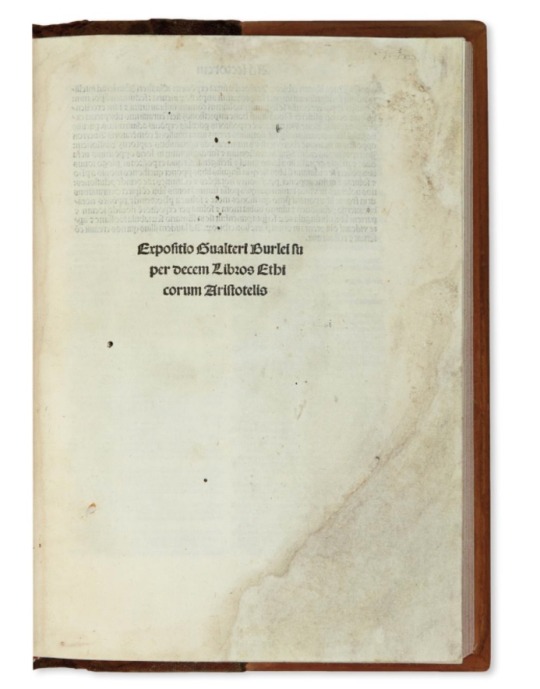
View On WordPress
#Buridan Agent Intellect Buridan Common Sense Buridan Hylomorphism Buridan Intelligible Species Buridan Intentions Buridan Phantasms Buridan#Buridan Aristotle#Buridan Common Sense#Buridan Materialism#Medieval Psychology#thirteenth century
0 notes
Text

my youtube search history from first year
#psychology#nier#monogatari#kaiki deishu#shrek#(??)#god i feel so ridiculous tagging but i know ppl would enjoy this
4 notes
·
View notes
Text
2 notes
·
View notes
Text
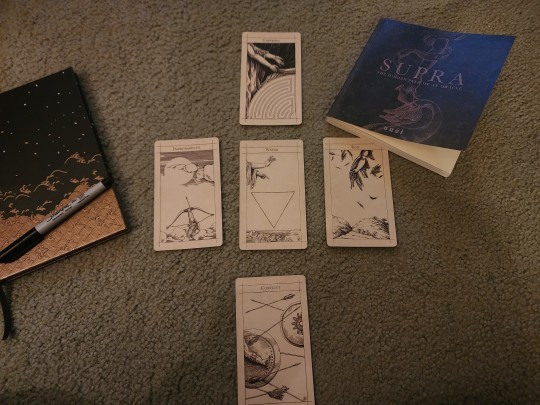
A new deck means a new deck interview and this time the deck did some serious talk back.
Deck is the @uusidesignstudio #supraoracle and is probably the most alchemical deck I have ever worked with. Inspired by medieval gnosticism and jungian psychology, I am utterly enamored by this deck.
#oracle deck interview#oracle cards#cartomancy#alchemy#jungian psychology#medieval gnosticism#gnosticism
0 notes
Text

You could say they had a fragile understanding of reality!
😄
#history#glass delusion#psychiatric disorders#king charles vi#medieval#european history#glass#fragile#shattered glass#1300s#1400s#medieval history#1500s#1600s#psychology#disorder#funny history#france#royal#medieval europe#historical figures#strange history#fragility#nickys facts
1 note
·
View note
Text
"Scotland's first scientist," "The Lost Genius," "The Scottish Wizard," "The White Wizard" or "The Wizard of the North" are some of the terms used to describe Michael Scot. And although this Scottish sorcerer was referred to as the most "renowned and feared alchemist of the 13th century" as you will see, his psychomagic not only entertained Europe's social elite, but over time it was developed and became the modern disciplines of psychology and hypnosis.
Rather than becoming a slave to any one belief system, Scot Journeyed beyond religion, magical mathematical formulas, ancient philosophy and alchemy, pioneering new esoteric systems such as physiognomy, sometimes referred to as anthroposcopy. The ancient discipline of assessing a person’s character and personality from their outer appearance alone, especially the face, first appears in the Siddhars from ancient India.
In Scotland, Scot was said to have locked the plague in a secret vault beneath Glenluce castle and to have turned a coven of witches to stone, which became the standing stone circle of Long Meg and Her Daughters.
A popular legend in late 13th century told that Scot foresaw his own death by a stone falling on his head and he had even calculated the weight of the stone. To prevent this, he had a little steel skullcap made. However, during Mass: as he knelt, bareheaded, a stone was dislodged by the "tugging of a bell-rope" and fell from the tower, "during the elevation of the Host," landing on Scot's head and fatally wounding him.
0 notes